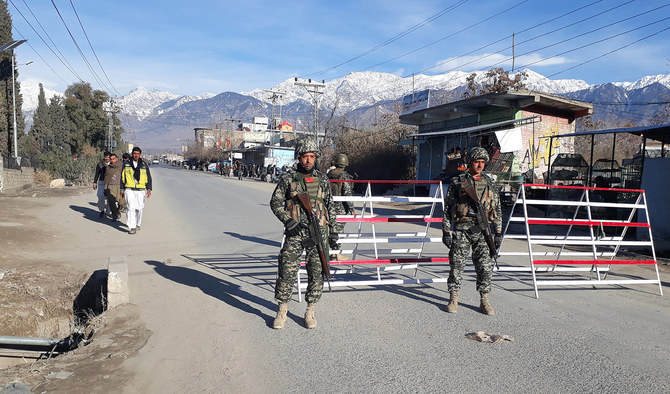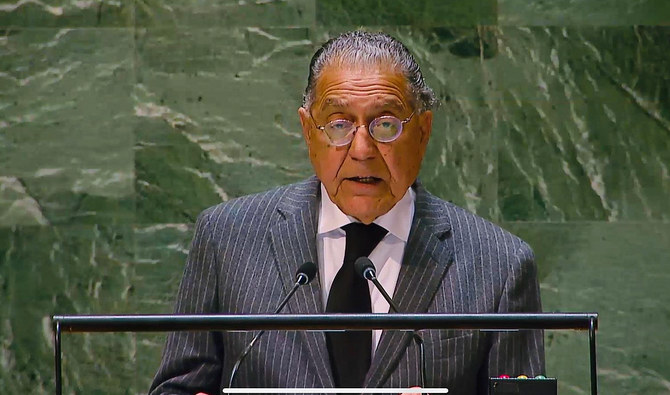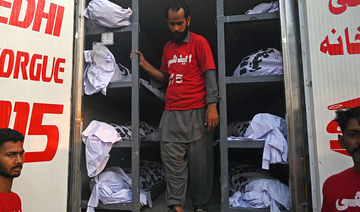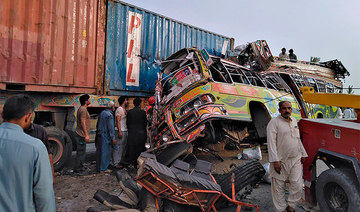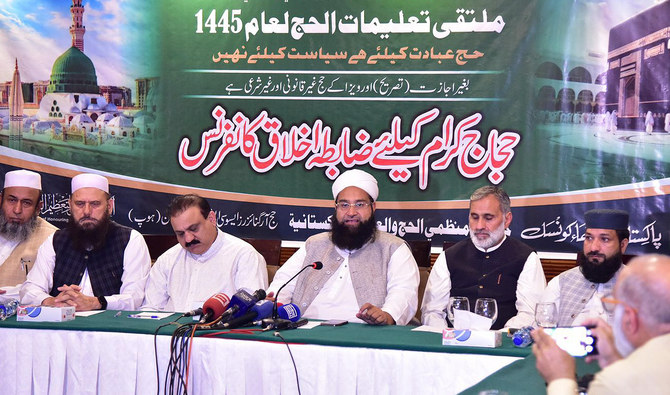KARACHI: Pakistani authorities have taken some stringent measures to broaden the country’s tax net, including blocking mobile phone connections of individuals and registering retailers, ahead of Islamabad’s talks with the International Monetary Fund (IMF) this month for a new loan program.
Pakistan and the IMF are expected to begin formal talks after the arrival of an IMF team in Islamabad in the mid of May. Islamabad has said it expects a staff-level agreement by July. Though both Pakistani and IMF officials have refrained from commenting on the size of the program, the South Asian nation is expected to seek around $7 billion bailout from the global lender.
Last month, Jihad Azour, the IMF director for the Middle East and Central Asia, said that “reform is now more important than the size of the program.” The Fund is insisting on increasing the tax net, implement energy reforms and ensure good governance as part of the reforms, according to Pakistani officials.
Speaking at a press conference in Islamabad on Thursday, Law Minister Azam Nazeer Tarar said the IMF had recommended a number of measures and the government would utilize this revenue for the betterment of the masses.
“The IMF has recommended to expand tax net, control electricity theft and ensure good governance to save the resources,” Tarar said, adding that introducing reforms in the Federal Board of Revenue (FBR) was top priority of the government to address economic issues and broaden the tax net.
The Pakistani government has reshuffled officials within the tax collection agency to streamline operations and enhance its transparency, according to the official. It has decided to block more than half a million mobile phone connections of individuals, who had not filed their tax returns, and emphasized on the registration of retailers ahead of formal talks with the IMF.
“FBR has taken decisive action by issuing an order to disable mobile phone SIMs associated with 506,671 individuals who fall under the aforementioned category,” the tax collection agency said in a notification issued on April 30.
“These measures are aimed at encouraging individuals to fulfill their tax obligations and contribute to the country’s economic development.”
In an another move, the FBR has decided to expedite the registration of around 3 million retailers, under the Tajir Dost Scheme, which focuses on traders and shopkeepers operating through a fixed place of business, including a shop, store, warehouse, office or similar physical place.
However, representatives of trade bodies say the scheme, launched on April 1, had not produced the “desired results.”
“The scheme is failing because there is no awareness among traders about the pros and cons of the scheme, while business conditions are also not supporting such a move,” Atiq Mir, chairman of the All Karachi Tajir Ittehad (AKTI), told Arab News on Friday.
“Amid high inflation and slow business activities, traders are struggling to survive and they can’t afford another burden of taxes.”
To deal with the situation, the FBR has appointed Muhammad Naeem Mir, chairman of the All Pakistan Anjuman-e-Tajran’s Supreme Council, chief coordinator of the Tajir Dost Scheme.
Naeem, who has not yet taken the charge, said he would analyze and discuss the strategy with FBR officials next week.
“From Monday onwards, we will draw strategy and work on the scheme after discussing and getting know-how of it from FBR officials,” he told Arab News.
Naeem denied any resistance from traders, saying the FBR had not run a comprehensive campaign to introduce the scheme, but people were “voluntarily registering themselves.”
Under the scheme, the FBR has notified registration of retailers in six major cities, including Karachi, Islamabad, Lahore, Peshawar, Rawalpindi and Quetta. The tax agency expects around Rs100 billion revenue by imposing advance tax in these cities from the July this year, according to FBR officials.
If the FBR successfully implemented the scheme by bringing about 3 million more taxpayers in the net, the overall active taxpayers would increase to more than 7 million from the existing 4 million in Pakistan.



